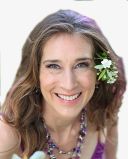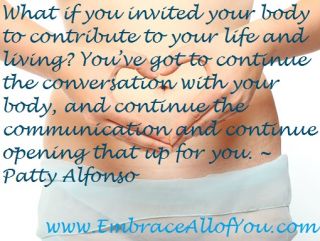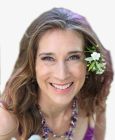
Relationships
How I Turned BodyShame Into BodyLove
4 steps to heal your relationships with food, your body, and yourself
Posted August 11, 2015
I was a senior in high school when I realized I was fat. My love of desserts started catching up with me (my way of coping with my father moving out and in with his mistress). My skirts were getting tight, people weren’t telling me I could be a model anymore, and I started hating the woman I saw in the mirror.
Then I discovered the gym. This began a 24-year battle with an eating disorder.
My own weight struggles and battle with an eating disorder led me to devote my research career to studying the factors that contribute to body image dissatisfaction and eating disorders in both men and women. In the past few years, I’ve changed my research focus to more of a prevention perspective. I want to encourage girls and women to love themselves, embrace the goddess within, and walk in their power so they don’t end up with body image dissatisfaction, depression, anxiety, eating disorders, etc.
What I've come up with is this: my 4-step plan that I used to heal my relationships with food, my body, and myself. It wasn't always easy, and sometimes I backtracked, but I stuck with my plan and came out on the other side loving the woman I see in the mirror.
Step 1: Stop comparing your body to everyone else, especially the images you see in the media - I had to enact a media ban (no magazines, no TV) so I wouldn't compare myself to the picture perfect images of beauty presented in the media. I also got educated on what the media does to the images you see (if you've never watched Dove Evolution, now's the time!). I also had to stop watching "reality" TV so I wouldn't compare my own weight loss to those of the contestants on shows like the Biggest Loser.
Step 2: Stop the “fat” talk - Here's the thing: research suggests that negative messages are much more powerful than positive ones. So stop saying negative things about yourself and other people and refuse to listen to negative talk (from you or others). Yes, it's hard, but it is also an incredibly powerful practice.
Step 3: EnVision What You Want - Why are you here? What’s your true purpose in life? I'm guessing that it’s probably not to be a super model! So it's time to celebrate you; your unique talents and gifts. You can’t compare you to anyone else because you’re you – even if you’re an identical twin. Focus on that for a change and see how your worldview shifts for the better.
Step 4: Learn to get comfortable in your own skin again - this one was a multi-step process for me. I first began to explore my senses – first thing in the morning before you open your eyes, feel – the softness of your sheets against your skin, the cool air touching the exposed areas of your body; gently stretch – roll your shoulders, your neck, flex your feet and hands. We are so visually oriented that I think our other senses get neglected. Don't let that happen! Get reacquainted with your sense of touch, smell, taste. Next up is the mirror exercise. I want you to look at your reflection in the mirror – eye to eye - and say I love you. Bonus points for writing it on your hand

every day. Third, create a morning self-love ritual (e.g., saying what you love about yourself or your body while in the shower, putting on lotion, etc.). This was another powerful discovery for me as I found that how I started my day set the tone for the rest of my day. To keep this feeling going throughout the day, I also came up with quick things I could do that would make me feel really good (e.g., dance, sing, paint, hang out with friends) and get my mind on the things that I love about my life. I also carry essential oils with me a scent is such a powerful mood lifter for me
I hope these steps help you learn to fall in love with you and your body again - cellulite, stretch marks, scars, warts, wrinkles, adult onset acne, and all!

